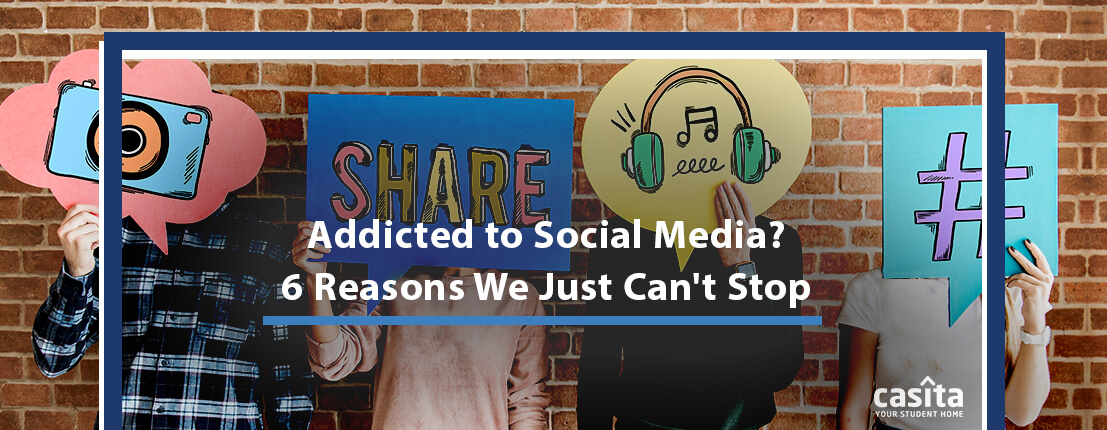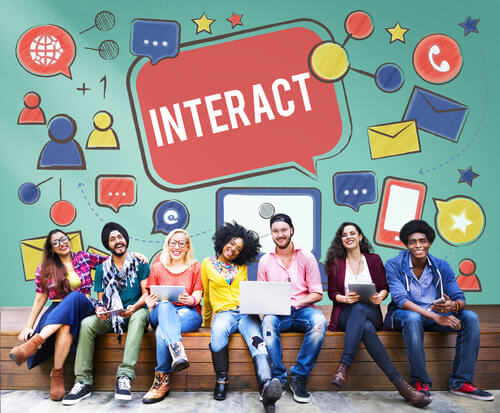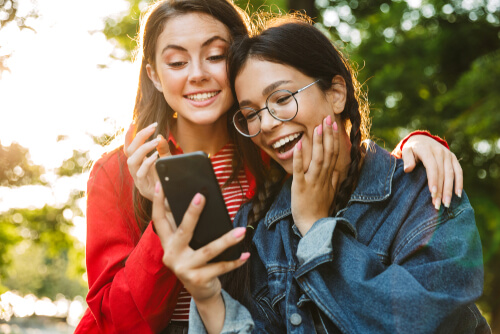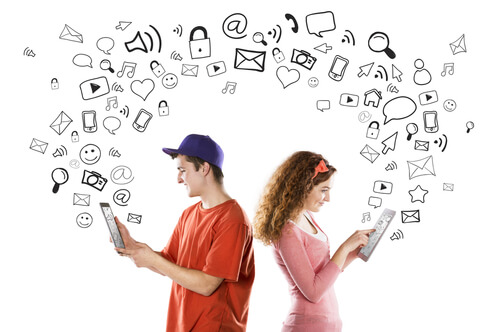Addicted to Social Media? 6 Reasons We Just Can't Stop
Entertainment
Tips and Advice
6 mins read
Share

Updated at: 16 December, 2024
Published at: 01 December, 2019
By Hadeel Hossam
Addicted to Social Media? 6 Reasons We Just Can't Stop
Entertainment
Tips and Advice
6 mins read

Updated at: 16 December, 2024
Published at: 01 December, 2019
By Hadeel Hossam
Share
There is no doubt that the recent technological development has revolutionized this decade’s social communication. The whole world has become in the palm of our hands. However, it also changed general human nature and behavior. For example, are your eyes always glued to your mobile screen? Does your free time consist of endless scrolling between the same three or four apps? Do you feel anxious and fidgety when you haven’t checked your phone for fifteen minutes? Does that notification sound has you jumping to reach for your phone no matter what you’re doing? Are your grades dropping rapidly because you just can’t focus? If your answer is yes, then you most likely have an addiction to social media!
Students nowadays are obsessed with posting every detail of their lives and how many likes or comments they get on their posts. Someone could make a post on Instagram or Facebook and spend the entire day monitoring people’s reactions and counting likes instead of doing something productive. It could go back to how social media presence is now related to how ‘cool’ someone is, and getting the most likes or retweets is, in a way, code for being accepted and welcomed into society. So if you’re a college freshman, you’ll probably try your hardest to make it into the ‘cool kids crowd’ thinking it’s the way to make friends, but it’s definitely not because actually talking to people and being yourself is the way to gain true, lifelong friends.
This sort of addiction to social media is proved to cause negative impacts specifically on students, as it’s time-consuming and affects their academic performance. Even when we’re studying, we are all guilty of peeping our phones to check for social media notifications every 5 minutes, but do you ever wonder why? Here are some reasons why you just can’t help yourself, and neither can we:
1. More Than a Wi-Fi Connection
When we’re searching frantically for a Wi-Fi network to connect to, we’re actually looking for much more than that; it’s the human connection that we’re seeking. Social media was created to bring people closer to one another and it’s one of its most addictive traits. Humans are social by nature, and platforms like Facebook, Instagram, and Snapchat make that so much easier. Mark Zuckerberg described Facebook as being “at the intersection of technology and psychology, and it’s very personal.”
Finding people on social media that are like-minded or seeing a post that you and others can relate to, makes you feel like you’re not alone in your life experiences. That’s why we constantly share specks of our lives, like pictures of the places we are in or visit, the food we’re eating, and our daily accomplishments or opinions. Something as simple as receiving the ‘like’ button satisfies our inherent human need to be in touch with others and be accepted. This need multiplies if you’re an international student, of course, since you’re away from home, family, and friends, and the desire to be accepted increases.

2. Taking Off your Invisibility Cloak
Do you find it difficult to share your opinions and feelings in your class, in groups, or at home? Does it make you feel invisible and unheard of? If you’re naturally a shy person, social media could be your safe space to express yourself and create your own world. Social platforms have the perk of allowing you to pick exactly the type of people you want to interact with and the type of content you want to be exposed to so that you can share your thoughts about it. The idea of privacy and anonymity that exists in social media will make you feel safe in doing so without receiving any judgment. That feeling of freedom of expression without the complications of real-life interactions is one of the best things about social media platforms and it could be addictive. However, anonymity is considered to be one of both the pros and cons of social media when people start taking advantage of it in ways that are harmful, so make sure you are being careful while interacting with strangers online.

3. You’re Doing Amazing, Sweetie!
Another human need that social media fulfills is the need of receiving validation. Sharing your achievements, whether personal or practical, on social platforms usually has one goal: to receive attention and praise, which is completely normal. As a teenager, you might often feel a need to be seen and validated by someone who isn’t family! Being praised by strangers gives us a kind of satisfaction that differs from that of the people we see every day. Who doesn’t like hearing that they’re doing a great job or that they are looking good? Many studies show that getting likes, retweets or shares on a social media post releases the happiness hormone in the brain, Dopamine. This is because the natural need to be seen and validated is met, giving the brain positive reinforcement that could actually be addictive. This explains how it could turn to an obsession of craving a constant stream of those notifications to get your daily dose of happiness!
On the other hand, there are other ways to get that dose of happiness without obsessing over post engagement. Social media platforms have a fun side to them that makes them more enjoyable than wasting them on popularity contests. It can be a place you go to cheer yourself up by watching silly videos of babies and animals, laughing about the newest meme being passed around with relatable captions, sharing your love for an artist with other fans, or asking for opinions on anything you’re dealing with.

4. Keeping Up with the World
One of the reasons you can’t put down your phone is this era’s growing urge to stay updated with everything going on. Dan Herman, a marketing strategist, marked it as a modern-day phenomenon and gave it the name “the fear of missing out (FOMO)”. People always want to stay up-to-date with the latest news or trends as to not feel excluded, especially with the world moving so fast and not waiting for anyone to catch up. It’s why social media has live streams and live posts of important events, so even if you don’t have time to catch the news, it’s all there in your back pocket. You can make use of these essential benefits when you want to stay posted with how things are at home. It also helps you keep up with updates in your university, your student accommodation event groups and pages, or college study groups on various social media platforms. Staying updated also strengthens the previously mentioned need for human connection since people usually do it to be in touch and not feel left out.

5. Me, Myself, and I
Studies show that people enjoy talking about themselves the most, so there’s no point in trying to deny it! However, the idea of constantly talking about yourself in real life is socially unacceptable. Social media platforms give you that luxury without raising doubts that you are a narcissist because that’s what they are made for! It’s where people can narrate their everyday life, memories, hopes, and dreams freely. Research shows that this self-driven communication stimulates the brain’s pleasure centers. This is why you just can’t help but share what you’ve had for breakfast or how much you’re stressed about your midterms! You can use this wisely by checking up on your friends if they’re posting about feeling down, help someone complaining about a subject that you’re ace-ing and starting study groups. Sharing study materials with one another is also another way of communicating with your college friends, some even post their hour-by-hour achievements to motivate one another. As a student, having effective study strategies might be tiresome, so using some help from extra-organized students by sharing your study plans with them will help you a lot. To learn more, read our 24 Hours to Improving Studying Strategies blog article.
6. Sweet Escape
Feeling the pressure of starting a new academic year or the stress from the amount of preparation you have to do? This is probably why you try to distract yourself by constantly being on social media. It can become problematic if you’re not careful when you use it as a coping mechanism for the problems you have. It’s a common reason for social media addiction since people use social platforms to escape stress, depression, or loneliness. It gives them feelings of reward and validation they don’t receive in their real lives. However, it’s a slippery slope and could cause more harm than good, so try to put down the phone and talk to a friend instead or leave your phone at home and visit your favorite place.
Ultimately, even though social media is important in every student’s life, if you think that its influence is starting to get in the way of your studying and academic performance, then you have to take a step back and think about how to combat the issue. Take a look at our Study Hacks to Avoid Distractions blog article for more guidance.
Entertainment
Tips and Advice
By Hadeel Hossam
Share
Entertainment
Tips and Advice
Updated at:
Published at:
By Hadeel Hossam
Share

